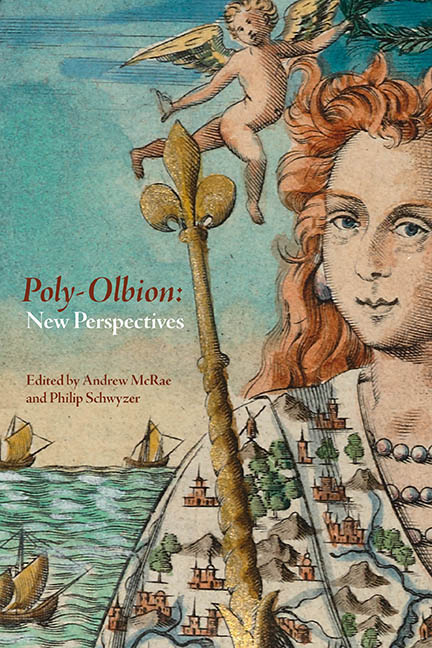9 - Michael Drayton: National Bard and Genealogist
Published online by Cambridge University Press: 27 March 2020
Summary
The fundamental role played by Wales, its land and history in the narrative of Poly-Olbion is a question which has long fascinated its readers. Drayton’s decision to adopt the poetic voice of a Welsh bard is especially intriguing, since bards were traditionally seen as complex figures, uniting the characteristics of skilled poets, national historians, heralds, and prophets; like similar poets of oral cultures and communities, they were in charge of preserving the memory of their people and princes through the knowledge of genealogies, which allowed them to tie the remote past to the present and the future.
The conceptualization of Welsh bards as historians in Poly-Olbion has been variously explained, with special attention to the First Part of the poem, which contains most of the historical narrative that has most appealed to its readers. Philip Schwyzer suggests that Drayton found in the figure of the bard a way to join the ‘custodianship of history and national lore’ and the ‘extraordinary public authority and respect’ he saw embodied in the ideal figure of the Elizabethan and Jacobean ‘poet historical’ and ‘poet laureate’. According to J. E. Curran, Jr, the function of bardic poetry as an oral means to preserve the national past raised a fundamental question in Drayton's mind: its actual value as an historical source. While early modern antiquarians like William Camden rooted their narrative of the past into monumental history and material remains, the ‘tradition’ of Welsh oral poetry praised by Drayton, though ultimately grounded in history, could not provide equally certain evidence. G. G. Hiller suggests that Drayton chose bards as an archetype of poets-historians-prophets and saw ‘an analogy between his own task of immortalizing his country's noble ancestors […] and the bards’ recording of their countrymen's deeds and genealogies’, a task on which Hiller elaborates no further.
Maintaining a similar focus on the First Part of the poem, this chapter builds on this criticism and suggests that a study of the Welsh bards’ social role as genealogists – an aspect which deeply interested Drayton – can shed new light on representations of history and nationhood in Poly-Olbion. As the chapter argues, Drayton constructed a narrative of the national past based on the same genealogical principle of medieval historiography which informed Welsh bardic poetry – a principle whereby ‘dynastic time’, or the genealogical succession of kings, acted as the backbone of history.
- Type
- Chapter
- Information
- Poly-Olbion: New Perspectives , pp. 188 - 210Publisher: Boydell & BrewerPrint publication year: 2020

